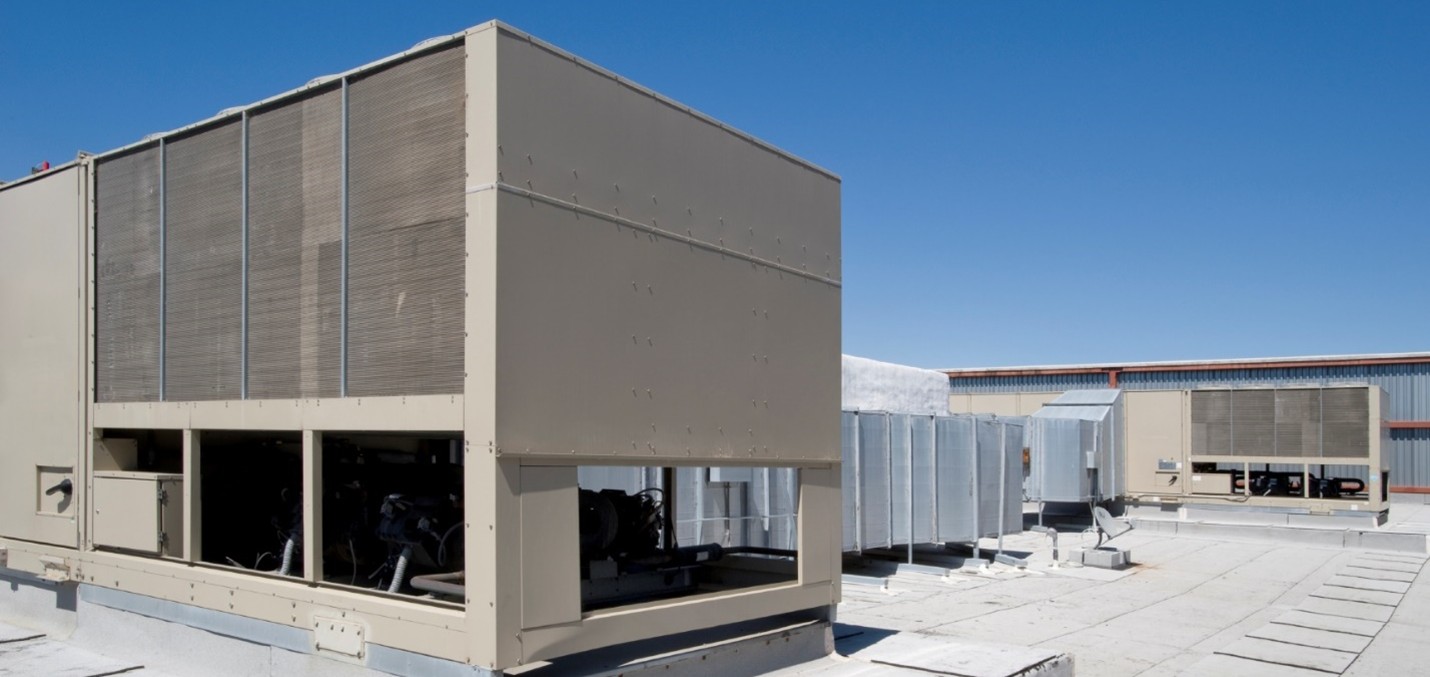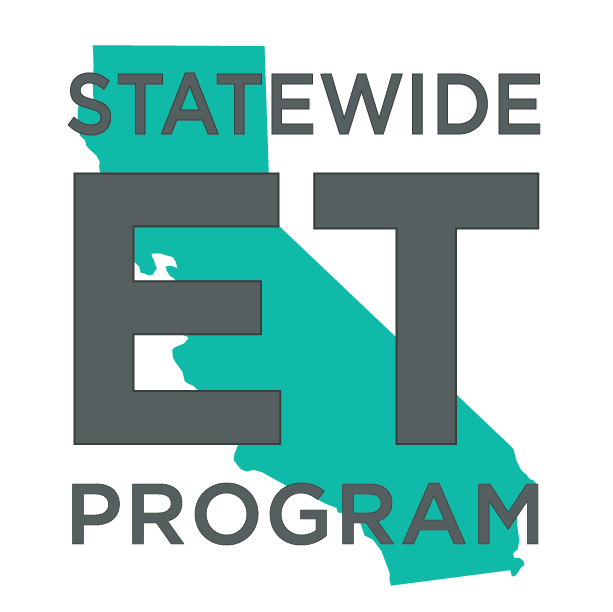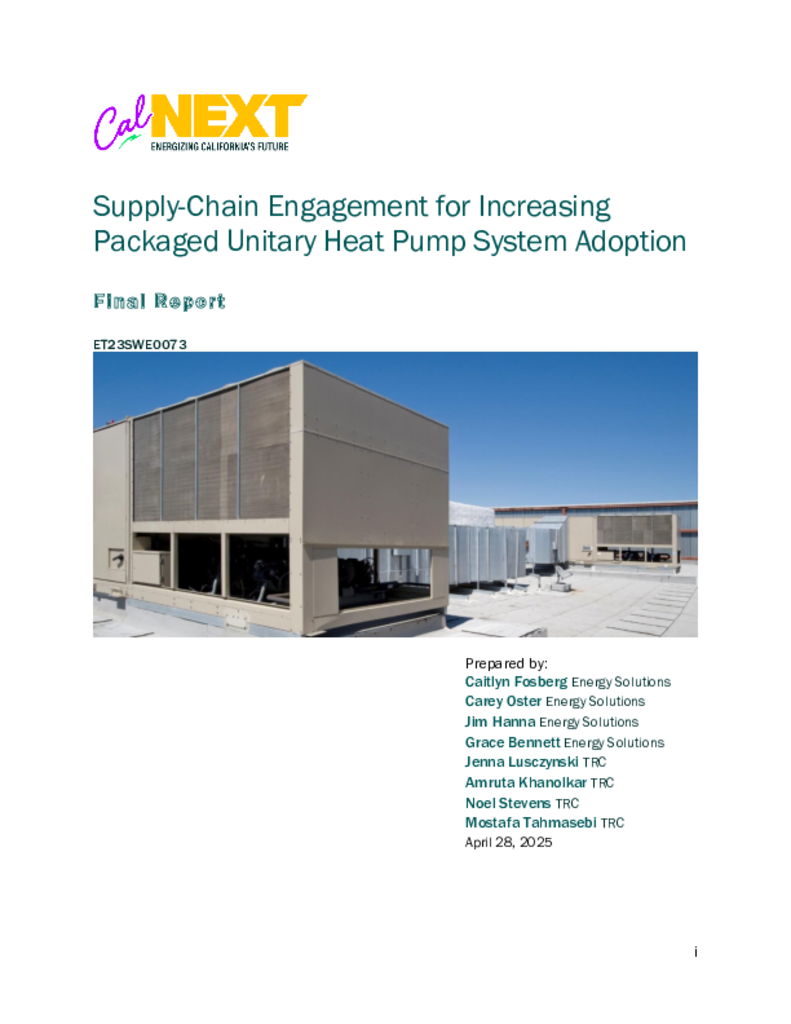ET23SWE0073 - Supply Chain Engagement for Increasing Packaged Unitary Heat Pump System Adoption

This focused pilot aims to increase the adoption of Commercial Packaged Unitary Heat Pump systems (Commercial HP RTUs) ≥ 5.4 tons through a streamlined midstream pilot program. While Commercial HP RTUs have been on the market for decades, adoption in CA is lower than expected given the generally mild climate that is suitable for heat pump heating. Commercial HP RTUs can serve as a drop-in replacements for the thousands of RTU air conditioners currently installed in California.
The midstream pilot program aims to offer a higher incentive and a more streamlined application process than the existing statewide program. The program will address some of the barriers to participation identified in the most recent program evaluation including low incentives and complex data collection requirements. In addition, interviews will be conducted with program participants at all levels of the supply chain including manufacturers, distributors, contractors, design engineers, and end users to understand the barriers preventing heat pump adoption in CA, both real and imagined. The findings from this study will inform future program design and other initiatives in CA aimed at increasing heat pump adoption. Data gathered though this project may also inform updates to relevant test standards and codes such as AHRI 340/360 and Title 24, Part 6/
The Supply-Chain Engagement for Increasing Packaged Unitary Heat Pump System Adoption Focused Pilot aimed to understand the barriers limiting greater adoption of commercial heat pump rooftop units (HP RTUs) in California and overcome them through a midstream incentive approach. According to the U.S. Energy Information Administration (EIA) commercial building survey results, approximately 64 percent of all commercial buildings in the Pacific region of the United States used packaged air conditioners (AC RTUs) to provide space conditioning (EIA 2022) (EIA 2018) . Compared with conventional packaged RTUs with natural gas heating, HP RTUs are estimated to reduce greenhouse gas (GHG) emissions and energy costs by up to 50 percent (U.S. Department of Energy 2025). However, despite the prevalence of replacement-ready AC RTUs, HP RTUs have not reached widespread adoption in the commercial sector.
This project provides a market characterization of the commercial heat pump market to identify challenges and opportunities to transform the commercial RTU market in favor of HP RTUs. To complete this market characterization, the project team engaged with market actors across the supply chain to gain insights into barriers to sales, design, and installation of HP RTUs, and to explore potential interventions to mitigate these obstacles. The team also researched HP RTU technologies available in the market, their technical specifications, California code requirements, California Technical Resource Manual (TRM) requirements (electronic TRM for deemed measures), and the Comfortably California incentive structure to better understand the current program challenges and develop technical program requirements that will help with program adoption. This market research helped guide the development of the focused midstream pilot offered in support of this project.
The focused midstream pilot component of the project was designed to address program participation barriers including difficulties collecting customer contact information at the midstream level and low incremental measure cost (IMC) coverage for HP RTUs. A midstream HVAC program pays incentives to and collects data from distributors of HVAC equipment. The project team ran a focused midstream pilot offering enhanced incentives and creating a more streamlined program experience to boost HP RTU participation.

